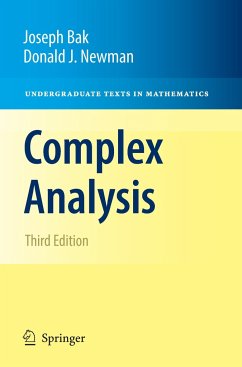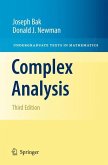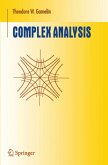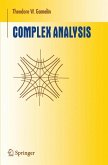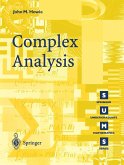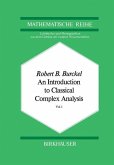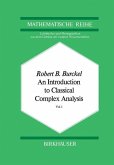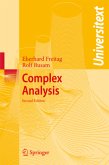Beginning with the ?rst edition of Complex Analysis, we have attempted to present the classical and beautiful theory of complex variables in the clearest and most intuitive form possible. The changes inthisedition, which include additions to ten of the nineteen chapters, are intended to provide the additional insights that can be obtainedby seeing a little more of the "bigpicture".This includesadditional related results and occasional generalizations that place the results inaslightly broader context. The Fundamental Theorem of Algebra is enhanced by three related results. Section 1.3 offers a detailed look at the solution of the cubic equation and its role in the acceptance of complex numbers. While there is no formula for determining the rootsof a generalpolynomial,we added a section on Newton'sMethod,a numerical technique for approximating the zeroes of any polynomial. And the Gauss-Lucas Theorem provides an insight into the location of the zeroes of a polynomial and those of its derivative. Aseries of new results relate to the mapping properties of analytic functions. Arevised proof of Theorem 6.15 leads naturally to a discussion of the connection between critical points and saddle points in the complex plane. The proof of the SchwarzRe?ectionPrinciplehasbeenexpandedtoincludere?ectionacrossanalytic arcs, which plays a key role in a new section (14.3) on the mapping properties of analytic functions on closed domains. And our treatment of special mappings has been enhanced by the inclusion of Schwarz-Christoffel transformations.
From the reviews of the third edition:
"The book of the known mathematicians J. Bak and D. Newman is an excellent introduction into the theory of analytic functions of one complex variable. The book is written on an elementary level and so it supports students in the early stages of their mathematical studies. ... The book also contains many illustrations, examples and exercises, which give additional information and explanations." (Konstantin Malyutin, Zentralblatt MATH, Vol. 1205, 2011)
"The book of the known mathematicians J. Bak and D. Newman is an excellent introduction into the theory of analytic functions of one complex variable. The book is written on an elementary level and so it supports students in the early stages of their mathematical studies. ... The book also contains many illustrations, examples and exercises, which give additional information and explanations." (Konstantin Malyutin, Zentralblatt MATH, Vol. 1205, 2011)

